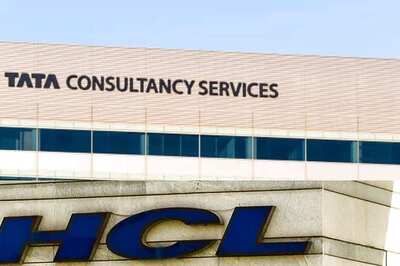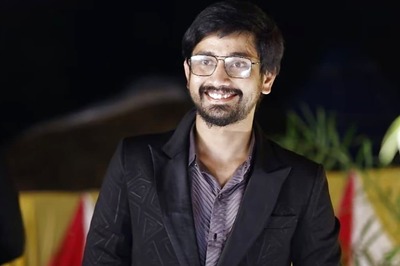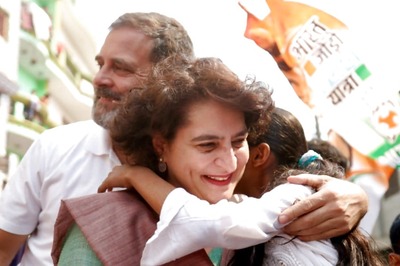
views
The Taliban movement’s inner workings and leadership have always been largely shrouded in secrecy, even during their rule of Afghanistan from 1996 to 2001. They were ousted from their short-lived stint in power in Afghanistan in 2001, when the US troops had arrived following 9/11. The group has now seized power again even before the US completes its total withdrawal from the country.
In the 20 years in between, the Taliban have mainly been busy resisting the US, their sole goal being to seize back control of Afghanistan. Now, that they have succeeded, here is a rundown of the top leaders who run the show in the militant organisation:
Haibatullah Akhundzada
Haibatullah Akhundzada, a cleric from the southern Afghan town of Kandahar where the Taliban was born, is the supreme leader of the group, holding the title of ‘Amir al-Mu’minin’, or ‘commander of the faithful’. He presides over the Rahbari, or Quetta, shura, the top decision-making body of the Taliban. The first amir of the Taliban, Mullah Muhammad Omar, had ruled Afghanistan when the Taliban had seized power in 1996. Omar had fled to Pakistan following the 2001 US invasion and is said to have died there in 2013. His successor, one Mullah Akhtar Mohammad Mansour, was killed in a US drone strike in 2016, following which Akhundzada was elected to lead the Taliban. But while Akhundzada has largely remained in the shadows, the key operations are headed by three deputies.
Mullah Abdul Ghani Baradar
Ghani Baradar, the head of the Taliban’s political wing and its most public face as the lead negotiator for the group, is the third deputy. With reports saying that he was headed to Kabul from Doha following the fall of the Afghan capital, speculation was rife that he will be filling the leadership vacuum in Afghanistan in the wake of the sudden departure of President Ashraf Ghani and the collapse of the democratically elected government.
As Taliban seized power again, Baradar told news outlet Al Jazeera that the “type of regime” it plans to bring in Afghanistan “will become clear soon”, adding that it will ensure the safety of all citizens and officials. News agency Associated Press quoted Taliban spokesman Suhail Shaheen as saying the group is holding talks — though it was not clear with whom — to form an “open, inclusive Islamic government”. Shaheen announced on Twitter that Taliban fighters were under strict orders not to harm anyone.
“Life, property and honour of none shall be harmed but must be protected by the mujahideen,” he said. These statements are in keeping with recent attempts by the Taliban to project a more moderate image even as memories of its repressive regime are fresh in the minds of many Afghans.
Zabihullah Mujahid
For a very long time, not much was known about Mujahid other than a few reports that claimed he was “bloodthirsty for the Americans and the Afghan government officials”. For over 20 years, he communicated with the media only via the phone or text messages. On Tuesday, Mujahid sat on the chair of the director of Afghanistan’s media and information centre, who was assassinated by Taliban militants earlier this month, and addressed the Taliban’s first press conference in Kabul. This was the first time his face was revealed to the public. He is expected to play an important role in carrying out the group’s message to the world.
Sirajuddin Haqqani
Another of the Taliban’s top leaders is Sirajuddin Haqqani, the head of the militant Haqqani network. The United States has designated him a global terrorist and offered $5 million for information leading to his arrest. Haqqani is in charge of running the insurgency. He is also the head of the Haqqani Network, a US-designated terror group that is present both in Pakistan and Afghanistan and provides the fighting backbone of the Taliban. He inherited the leadership of the Haqqani network, which has strong links with al-Qaeda, from his father Jalaluddin. The network has reportedly formed a permanent based in Pakistan’s North Waziristan.
Abdul Hakim Haqqani
He is head of the Taliban’s negotiating team and is said to be a trusted aide of Akhundzada. Haqqani had been keeping a low profile since 2001 in Pakistan’s Quetta where he reportedly ran a madrassa. In September 2020, He was appointed chief negotiator for intra-Afghan talks. He also leads a senior council of religious scholars.
Mohammad Yaqoob, Founder’s Son
Son of Taliban founder Mullah Omar, Yaqoob was once the top contender to lead the group. According to some reports, he got his education from a seminary in Pakistan and currently lives in Afghanistan.
Hasibullah Stanikzai
He is the head of the Logar provincial council in Taliban, reportedly speaks impeccable English and is well-travelled. He was Abdul Hakim Haqqani’s deputy negotiator on talks with Afghan government officials. He visited the United States in 1996 in an attempt to convince the Bill Clinton administration to acknowledge the Taliban has a legitimate government but his attempt was unsuccessful.
Read all the Latest News, Breaking News and Assembly Elections Live Updates here.



















Comments
0 comment